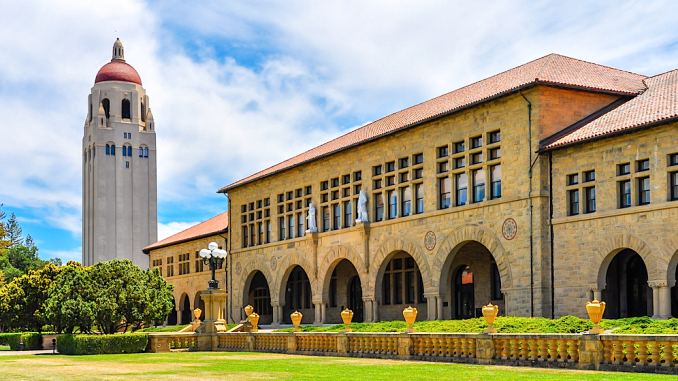
In the first lawsuit to come out of the college bribery scandal, several students are suing Stanford, Yale, Georgetown and other schools involved in the case, saying they and others were denied a fair shot at admission.
The plaintiffs brought the class-action complaint Wednesday (March 13) in federal court in San Francisco on behalf of themselves and other applicants and asked for unspecified damages.
(Link to the original complaint and an amended complaint, which has additional plaintiffs.)
They argued that applicants who played by the rules were victimized when rich and famous parents paid bribes that enabled unqualified students to get into highly selective universities.
“Each of the universities took the students’ admission application fees while failing to take adequate steps to ensure that their admissions process was fair and free of fraud, bribery, cheating and dishonesty,” the lawsuit said.
Legal experts, though, said the students could have difficulty holding the colleges responsible.
The scandal erupted on Tuesday (March 12) when federal prosecutors announced charges against 50 people, including coaches and dozens of parents, among them TV actresses Felicity Huffman and Lori Loughlin.
Prosecutors said parents paid to rig standardized exams and bribed coaches to get their children designated as recruited athletes in sports they didn’t even play, thereby boosting their chances of getting in.
The colleges have cast themselves as victims and have moved to distance themselves from the coaches, firing or suspending them.
The investigation began with a tip from an executive under suspicion in a securities fraud probe, according to a law enforcement official who was not authorized to discuss the case and spoke to the Associated Press on the condition of anonymity.
The executive told Boston authorities that the women’s soccer coach at Yale offered to label the executive’s daughter a recruited athlete in exchange for cash, the official said.
Among other developments today (March 14):
• The Hallmark Channel cut ties with Loughlin, a longtime star of its feel-good movies.
• Cosmetics company Sephora dropped Loughlin’s daughter Olivia Jade Giannulli, a 19-year-old social media star who frequently pushes products online.
• Golfer Phil Mickelson said he used the college consulting company accused of orchestrating the scheme, but emphasized his family was not involved in any fraud. One of his daughters is a sophomore at Brown University. Brown said it has found no evidence of fraud among its athletes.
The class-action complaint was brought initially by Erica Olsen and Kalea Woods, now students at Stanford. It was revised today to remove Olsen and add three new student plaintiffs — Lauren Fidelak, a student at Tulane; Tyler Bendis, an Orange County resident who attends an unnamed community college; and James Johnson, who attends Rutgers University.
Plaintiff Fidelak was rejected by USC and UCLA. Bendis was rejected by Stanford, USD and UCLA.
The suit said that Johnson had a 1,500 out of 1,600 on the SAT, a 4.65 GPA, was a “star of the school math team” and a Varsity hockey player in high school. However, Johnson was rejected by Stanford and the University of Texas at Austin, a defendant in the suit.
The University of Texas at Austin issued a statement saying that it is “outraged” over the bribery scheme and that any wrongdoing at the school does not reflect its admissions practices and was carried out by “one UT employee.”
Other schools named in the lawsuit were the USC, UCLA, Wake Forest University and the University of San Diego.
The students in the lawsuit could have a difficult time tying the schools to the fraud in the absence of further evidence, said Joy Blanchard, a professor at Louisiana State University who focuses on higher education law.
“They won’t be able to prove that the universities were behind some grand scheme,” she said.
Kyle McEntee, an attorney who has pushed for reforms in law school education, said the lawsuit “reeks of opportunism.”
“It’s tough to see these succeeding,” he said.
Legal experts said the plaintiffs at highly selective Stanford would have had an especially hard time showing they suffered any harm, since they still got into an elite institution. Messages seeking comment from Olsen and Woods were not immediately returned.
Among other claims, the lawsuit said that the universities should have discovered the bribes and that their failure to do so through audits or other practices reflects “an unfair business practice.”
USC officials said earlier this week that prosecutors believe that the perpetrators “went to great lengths to conceal their actions from the university.” Yale, likewise, said it was “the victim of a crime.”
— by the Associated Press




This scandal is disgusting. Merit should be the only criteria for admissions. I’m sure Stanford wants to brush this under the rug, but they need to be held accountable. I hope this lawsuit results in big changes.
Gee, I got rejected by schools in 1971 with better scores and GPA’s than they had… Only problem, I’m not whining about it, I DID JUST FINE….
The story says: “the lawsuit said that the universities should have discovered the bribes and that their failure to do so through audits or other practices reflects “an unfair business practice.””
I don’t know if it’s an “unfair business practice”, but the fact that the universities didn’t halt this practice of allowing families to bribe their way into a school shows the top administrators were either not paying attention or complicit in the bribery. Either way, the alumni ought to be demanding new leadership.